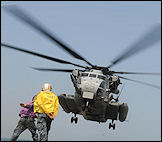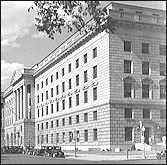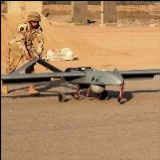 The Directorate of Defense Trade Controls (“DDTC”) finally released its much anticipated (or dreaded, depending on your point of view) new proposed rules on brokering of defense articles and defense services. Although I intend to look at these proposed rules in more detail in subsequent posts, I wanted to talk first about one issue of particular concern to me.
The Directorate of Defense Trade Controls (“DDTC”) finally released its much anticipated (or dreaded, depending on your point of view) new proposed rules on brokering of defense articles and defense services. Although I intend to look at these proposed rules in more detail in subsequent posts, I wanted to talk first about one issue of particular concern to me.
Naturally I first looked at how the new rules handled export lawyers who provide advice to defense manufacturers. The language of the old rules was broad enough that arguably all export lawyers were brokers and needed to register under part 129 of the International Traffic in Arms Regulations (the “ITAR”) because brokering was defined to include any action that facilitated the manufacture or export of defense articles. Notwithstanding the breadth of that language, lawyers and law firms have not been registering under Part 129, using the well-accepted principal of statutory construction: hic lex non comprehendo mihi. And DDTC had not been rattling any sabers about their not registering.
The proposed rule now specifically exempts “activities by an attorney that do not extend beyond providing legal advice to a broker.” This exemption would seem to require the conclusion that all export lawyers need to register unless they are only providing advice to brokers, although it’s hard to imagine this is what DDTC actually intends.
But it gets worse. Not only will law firms with export lawyers have to file a registration application and pay the annual registration fee, but they also will have to obtain prior approval from DDTC prior to providing many legal services to defense manufacturers. The new rules require prior approval for all brokering activities unless they are specifically exempted from that requirement in the new section 129.7, which exempts brokering (a) conducted for a government agency, (b) brokering of certain defense articles (excluding, for example, night vision) wholly within NATO countries, Japan, New Zealand, Australia or South Korea, or (c) brokering of defense articles that are not “Significant Military Equipment” (“SME”) for end use by foreign governments or international organizations. So, if a law firm provides advice to a defense manufacturer about exporting night vision to France, the law firm will need DDTC approval before providing that advice.
This, of course, is either pernicious policy or unbelievable sloppy drafting by DDTC. The agency takes great pains to exclude banks, insurance companies and freight forwarders from the scope of the new brokering rules but leaves them fully applicable to law firms and requires law firms to obtain agency permission to provide legal services. I cannot think of another instance (other than cases involving blocked parties) where federal agency permission is needed as a precondition to the provision of legal services to clients.
Comments are due on February 17, 2012.

 Posted by
Posted by  Category:
Category: 

 Although I am not a mathematician, I have recently discovered (with the help of a regular reader) some new imaginary numbers other than those well known imaginary numbers that are the square roots of negative numbers. The new imaginary number can be found on the
Although I am not a mathematician, I have recently discovered (with the help of a regular reader) some new imaginary numbers other than those well known imaginary numbers that are the square roots of negative numbers. The new imaginary number can be found on the  Oh, the things you’ll learn when you read the
Oh, the things you’ll learn when you read the  On November 7, the Directorate of Defense Trade Controls (“DDTC”)
On November 7, the Directorate of Defense Trade Controls (“DDTC”)  My inbox this morning had several, er, heads up alerting me to news that the Directorate of Defense Trade Controls (“DDTC”) has
My inbox this morning had several, er, heads up alerting me to news that the Directorate of Defense Trade Controls (“DDTC”) has 

